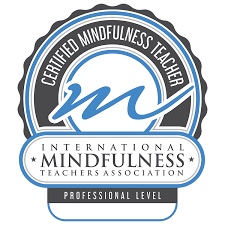When it comes to meditation, there is the untrue perception that the aim is to empty the mind. There is also the unattainable hope that a clear mind will be an antidote to anxiety or distress. Peacefulness through meditation is not achieved by turning off the mind, but by revealing the true sound of the Self – a sound that lies beneath the immensity of noise created by modern life.
In his timeless essay, Self-Reliance (1841), Ralph Waldo Emerson urged a young American society to “learn to detect and watch that gleam of light which flashes across his mind from within, more than the luster of the firmament of bards and sages.” He underscored the virtue of capturing the sound of one’s unadulterated voice – of “[detecting]… that gleam of light”- and acting on it with confidence. Today’s “bards and sages” are an overwhelming distraction. We are not subjected to the “luster” of a singular culture, community, or society – but rather the protracted shimmer of the entire world at our fingertips. It is very difficult to access the sound of one’s Self.
Self-Reliance is more than a philosophical ideal; it is about possessing an authentic confidence in one’s being. This confidence is a certainty in the Self - it is uncontrived, uninfluenced, unembellished. It is honest. But to be self-reliant, we must quiet the noise of the external environment. We must detach from the expectations and influence of our surroundings. We must be present in the world, while operating from an internal standpoint. We must be mindful.
When we are mindful we pay attention to our life as it unfolds in the present. With presence, regrets of the past and concerns for the future are quieted. Mindfulness allows us to cultivate a moment-to-moment awareness of life. When we are mindful we access the sound of our Self. And when we hear the sound of our own voice, the voices of anxiety, fear, and insecurity are more difficult to discern. When the scourge of emotional distress is tempered, we realize the profundity of Emerson’s words: “Nothing is at last sacred but the integrity of [our] own mind.”
A mindful state of being is accessed through the simple and effective practice of meditation. Meditation takes discipline; it can be difficult to seek stillness counter to the dynamism of modern life. The effects of mindfulness meditation require one to commit to a consistent practice. Even Emerson conceded, “the voices we hear in solitude…grow faint and inaudible as we enter the world.” So, we return to meditation again and again, growing assurance in our Self. With self-reliance we steady ourselves with an honest confidence. And with confidence in our Self, we navigate our lives with increased grace and ease.
Click below to join me in meditation.





